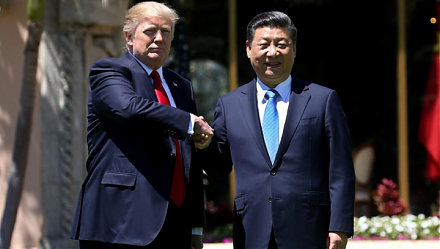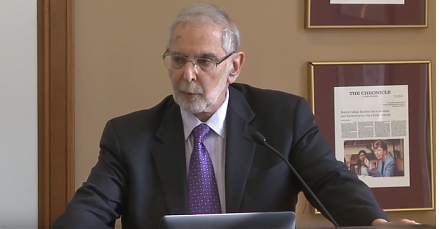

2018-12-17 08:43:00 Mon ET
technology antitrust competition bilateral trade free trade fair trade trade agreement trade surplus trade deficit multilateralism neoliberalism world trade organization regulation public utility current account compliance
Apple files an appeal to overturn the recent iPhone sales ban in China due to its patent infringement of Qualcomm proprietary technology. This recent ban of some older iPhones 6s to X follows a legal request for an injunction by Qualcomm, which has been locked in an arduous lawsuit with Apple in recent years.
Qualcomm alleges patent violations on specific features that let users reformat the size and appearance of photos with freemium apps on a touch screen. In response, Apple claims that the patents in question cannot cover the latest iOS 12 operating system on all new iPhones Xs, Xs Max, and XR. This patent lawsuit is one legal battle in a much wider rift between Apple and Qualcomm across jurisdictions from Europe to China and South Korea. Mainland China, Hong Kong, and Taiwan are the third-largest market for Apple iPhones. This tripartite region accounts for 20% of $266 billion iPhone sales in the fiscal year as of September 2018.
The Qualcomm injunction may inadvertently induce iPhone users to upgrade their smartphones to iPhones Xs, Xs Max, and XR soon because the older models have become unavailable in the Chinese trifecta. Several Apple upstream suppliers from Foxconn and TSMC to Pegatron and Radiance can benefit much from this complex chemistry.
If any of our AYA Analytica financial health memos (FHM), blog posts, ebooks, newsletters, and notifications etc, or any other form of online content curation, involves potential copyright concerns, please feel free to contact us at service@ayafintech.network so that we can remove relevant content in response to any such request within a reasonable time frame.
2019-01-04 11:41:00 Friday ET

Chinese President Xi JingPing calls President Trump to reach Sino-American trade conflict resolution. Xi sends a congratulatory message to mark 40 years sin
2018-09-25 10:35:00 Tuesday ET

Sirius XM pays $3.5 billion shares to acquire the music app company Pandora. This acquisition would form the largest audio entertainment company worldwide.
2019-08-28 14:46:00 Wednesday ET

Santa-Barbara political economy professor Benjamin Cohen proposes new fiscal stimulus to complement the current low-interest-rate monetary policy. Cohen fin
2018-06-11 07:44:00 Monday ET

Facebook, Apple, Amazon, Netflix, and Google (FAANG) have been the motor of the S&P 500 stock market index. Several economic media commentators contend
2024-02-05 11:26:00 Monday ET

China poses new economic, technological, and military threats to the U.S. and many western allies. In the U.S. government assessment, China poses new eco
2018-12-01 11:37:00 Saturday ET

As the solo author of the books Millionaire Next Door and Richer Than Millionaire, William Danko shares 3 top secrets for *better wealth creation*. True pro